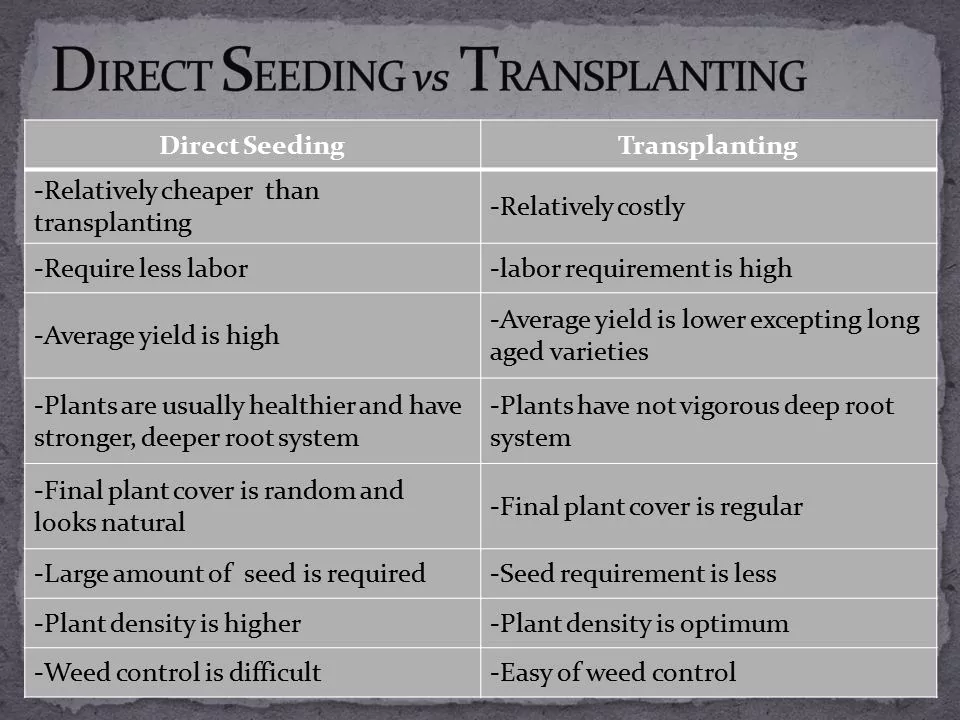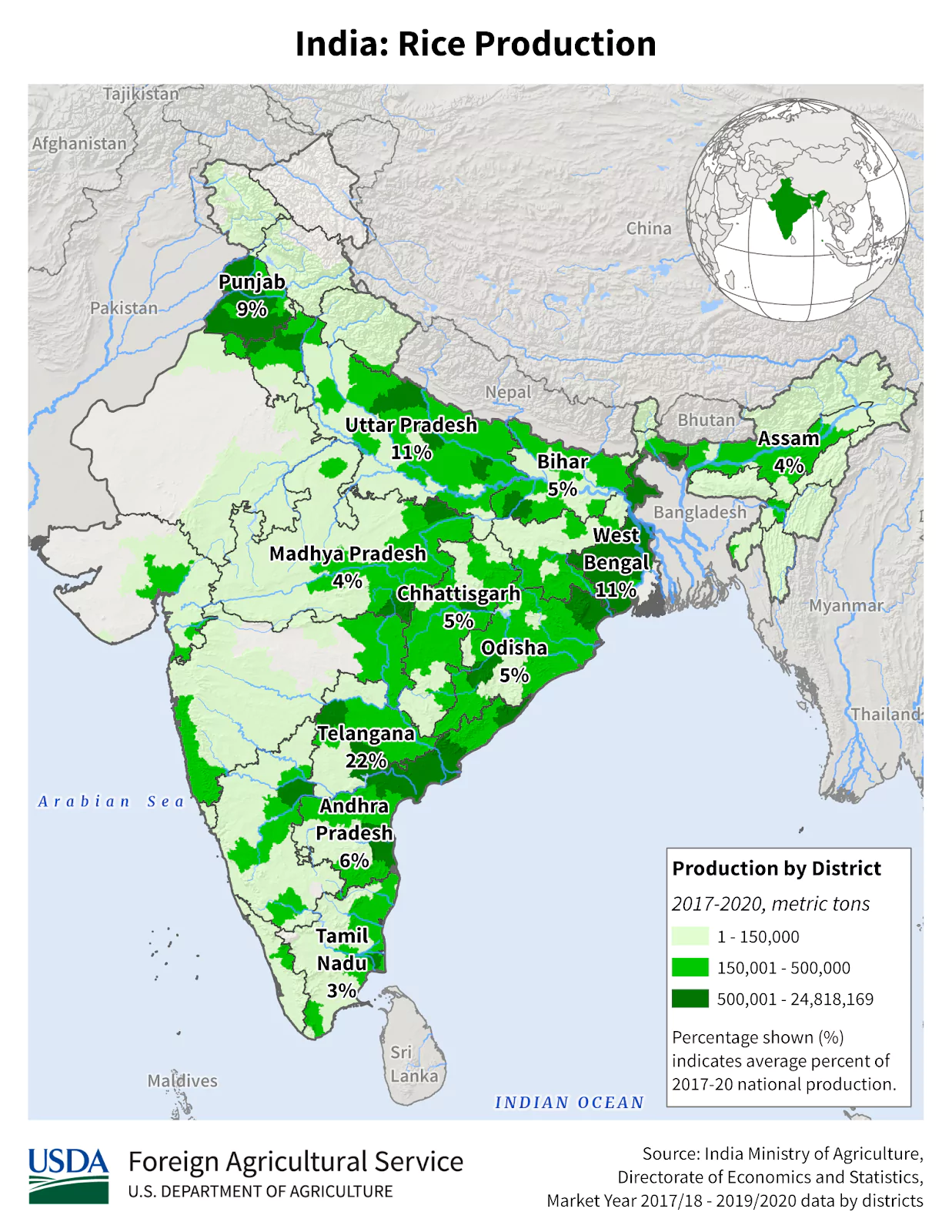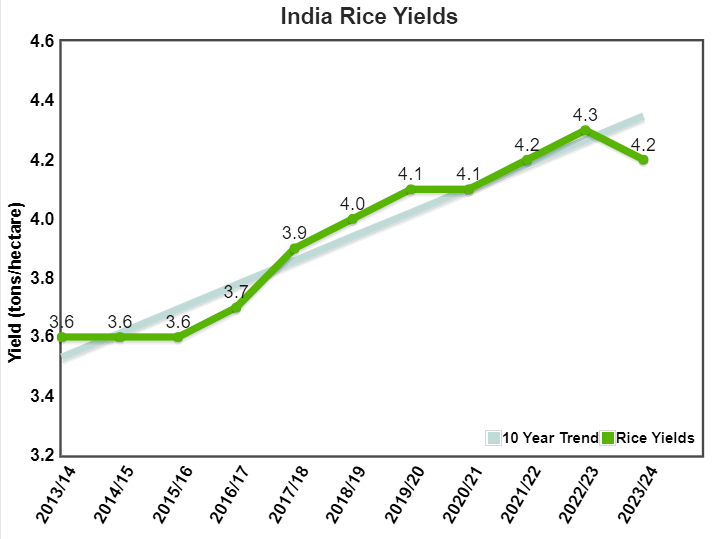Context
According to a paper released by the Federation of Seed Industries of India (FSII) and Sathguru Consultants, rice cultivation in India, especially using the direct seeded rice (DSR) technique, necessitates collaboration among multiple stakeholders.
Rice Cultivation Collaboration: Stakeholders
Various stakeholders are;
- Agri-input and farm mechanization companies: To provide necessary tools and equipment.
- Crop management advisories: To guide farmers on best practices.
- Government: To create an enabling environment and support policy changes
About Direct Seeded Rice (DSR) Technique:
- Direct Seeded Rice (DSR), also known as the ‘broadcasting seed technique,’
- It is a method in which less water is used during paddy cultivation.
- Method Description: In DSR, seeds are directly planted into the fields, eliminating the need for transplanting seedlings from a nursery to waterlogged fields.
- Groundwater Conservation: Unlike traditional methods, DSR saves groundwater by reducing the water-intensive practices associated with transplanting.
- Simplified Process: DSR requires minimal preparation, with no need for nursery setup or transplanting.
- Farmers only need to level their land and provide one pre-sowing irrigation, simplifying the cultivation process.
Challenges Associated with Direct Seeded Rice
-
Limited Adoption Despite Years in Practice:
-
- Despite its existence for several years, Direct Seeded Rice (DSR) has not gained popularity in key rice-growing areas of India because the lack of incentives for procurement of rice grown through this method hinders its widespread adaptation.

-
Concerns about Yield and Pest Susceptibility:
- Farmers often express dissatisfaction with DSR due to reported lower crop yields compared to traditional transplanting methods.
- Additionally, they cite increased vulnerability to pests and insects in DSR crops as another challenge.
-
Lack of Collaboration Platform:
- There is a need for a collaborative platform between agricultural research institutions, universities, and seed companies to accelerate the development and dissemination of improved DSR products. Without such collaboration, advancements in DSR may be slower to materialize.
-
Absence of Policy and Regulatory Frameworks:
- The absence of supportive policies and regulatory frameworks from the government poses challenges for DSR farmers. Issues related to land tenure, credit access, and market linkages need to be addressed to facilitate smoother adoption and implementation of DSR practices.

-
Insufficient Post-Harvesting Facilities:
-
- Insufficient post-harvesting facilities present obstacles to the quicker adoption of DSR. Improved facilities are necessary to handle and process DSR crops efficiently.
Status of Rice Crops in India
Area of Cultivation:
- Rice is cultivated on approximately 43.86 million hectares of land throughout India.
- Leading Rice Cultivating states: West Bengal, Uttar Pradesh, Andhra Pradesh, Punjab, Tamil Nadu, Bihar, Chhattisgarh, and Odisha are among the leading states in rice production in India.
Trend of Rice Yields In India
- Rice yields increased noticeably from 2013/14 to 2015/16, from 3.6 tons per hectare to 4.2 tons per hectare.
- There were fluctuations around 4.2 tons per hectare for the next three years.
- Rice yields then increased again in 2019/20 to 4.0 tons per hectare, and have continued to increase slightly since then.

Reason For Rise in Rice Production:
Also Read: World’s Largest Grain Storage Plan In Cooperative Sector
News Source: Business – standard
![]() 16 Mar 2024
16 Mar 2024


